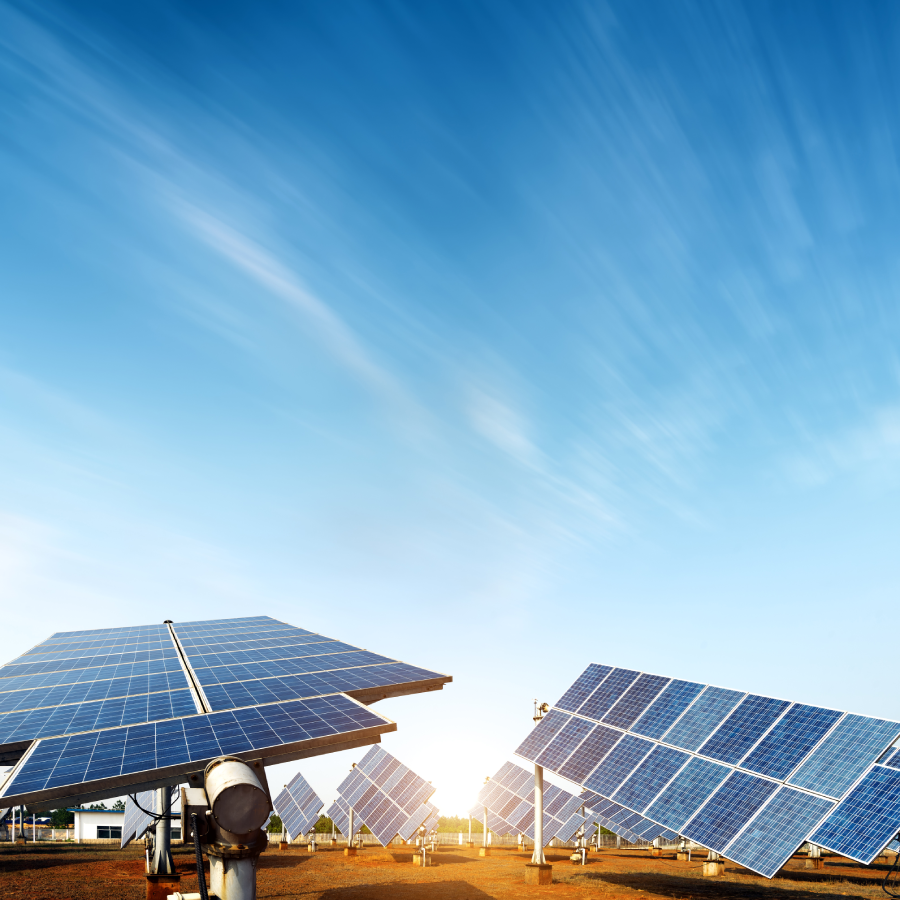Solar energy is one of the most preferred sources of renewable and sustainable energy. However, installing efficient solar energy systems requires more than just solar panels. Solar energy equipment plays a crucial role in ensuring system performance, efficiency, and longevity. This article explores the key solar energy equipment and their importance in a solar power system.
1. Solar Panels
Importance:
- Primary Source of Energy Generation: Solar panels convert sunlight into electricity, forming the foundation of the system’s energy production.
- Efficiency Determines Performance: The quality and efficiency of solar panels directly impact the amount of energy produced.
- Durability Ensures Longevity: High-quality materials make solar panels resistant to harsh weather conditions, ensuring reliable energy production for many years.
Key Considerations:
- Efficiency percentage (differences between monocrystalline, polycrystalline, and thin-film panels)
- Resistance to UV rays and weather conditions
- Warranty period and panel lifespan
2. Solar Inverters (Power Converters)
Importance:
- Converts DC to AC: Solar panels generate direct current (DC), but homes and businesses use alternating current (AC). Inverters convert this energy for practical use.
- Ensures Grid Compatibility: On-grid systems require inverters to synchronize generated power with the electrical grid.
- Minimizes Energy Loss: Inverters equipped with MPPT (Maximum Power Point Tracking) technology optimize panel efficiency and reduce power loss.
Key Considerations:
- Types: On-grid, off-grid, and hybrid inverters
- MPPT technology for higher efficiency
- Durability and cooling systems
3. Solar Batteries (Energy Storage Systems)
Importance:
- Stores Excess Energy: In off-grid systems, solar batteries store energy produced during the day for nighttime or cloudy-day use.
- Provides Backup During Power Outages: Batteries ensure uninterrupted power supply in case of grid failures.
- Enables Continuous Use of Solar Energy: Allows users to utilize stored energy when solar panels are not actively generating power.
Key Considerations:
- Differences between lithium-ion, gel, and AGM battery types
- Charge/discharge cycle lifespan
- Storage capacity and efficiency
4. Solar Charge Controllers
Importance:
- Prevents Battery Overcharging: Regulates power flow from solar panels to batteries, preventing overcharging damage.
- Enhances System Efficiency: MPPT and PWM technologies optimize power transfer to batteries.
- Ensures Safety: Protects against overcurrent, short circuits, and reverse connections.
Key Considerations:
- MPPT vs. PWM controllers
- Voltage and current capacity
- Protection circuits for longevity
5. Solar Cables and Connection Equipment
Importance:
- Prevents Power Loss: High-quality, low-resistance cables minimize energy loss between panels, inverters, and batteries.
- Reduces Fire and Short Circuit Risks: UV-resistant, flame-retardant cables and MC4 connectors enhance safety.
- Ensures Efficient Energy Flow: Proper cable thickness and secure connections maintain system integrity.
Key Considerations:
- UV resistance and outdoor durability
- Thickness and conductivity capacity
- Quality of MC4 connectors and waterproofing
6. Solar Mounting Equipment and Support Structures
Importance:
- Optimizes Panel Positioning: Ensures panels are placed at the best angle to capture maximum sunlight.
- Enhances System Security: Protects panels from extreme weather conditions like strong winds and hail.
- Provides Long-Term Stability: Stainless steel or aluminum materials ensure durability.
Key Considerations:
- Mounting angle and compatibility with geographical location
- Material durability (stainless steel, aluminum, etc.)
- Suitability for rooftop or ground-mounted systems
Conclusion
In solar energy systems, panels, inverters, batteries, charge controllers, cables, and mounting equipment are fundamental components that ensure system efficiency and reliability. Choosing high-quality equipment guarantees a long-lasting, safe, and high-performance solar energy system.
The success of your solar energy system depends on selecting the right components and optimizing the system based on your needs. By prioritizing quality and efficiency, you can create a sustainable and long-term energy solution.


